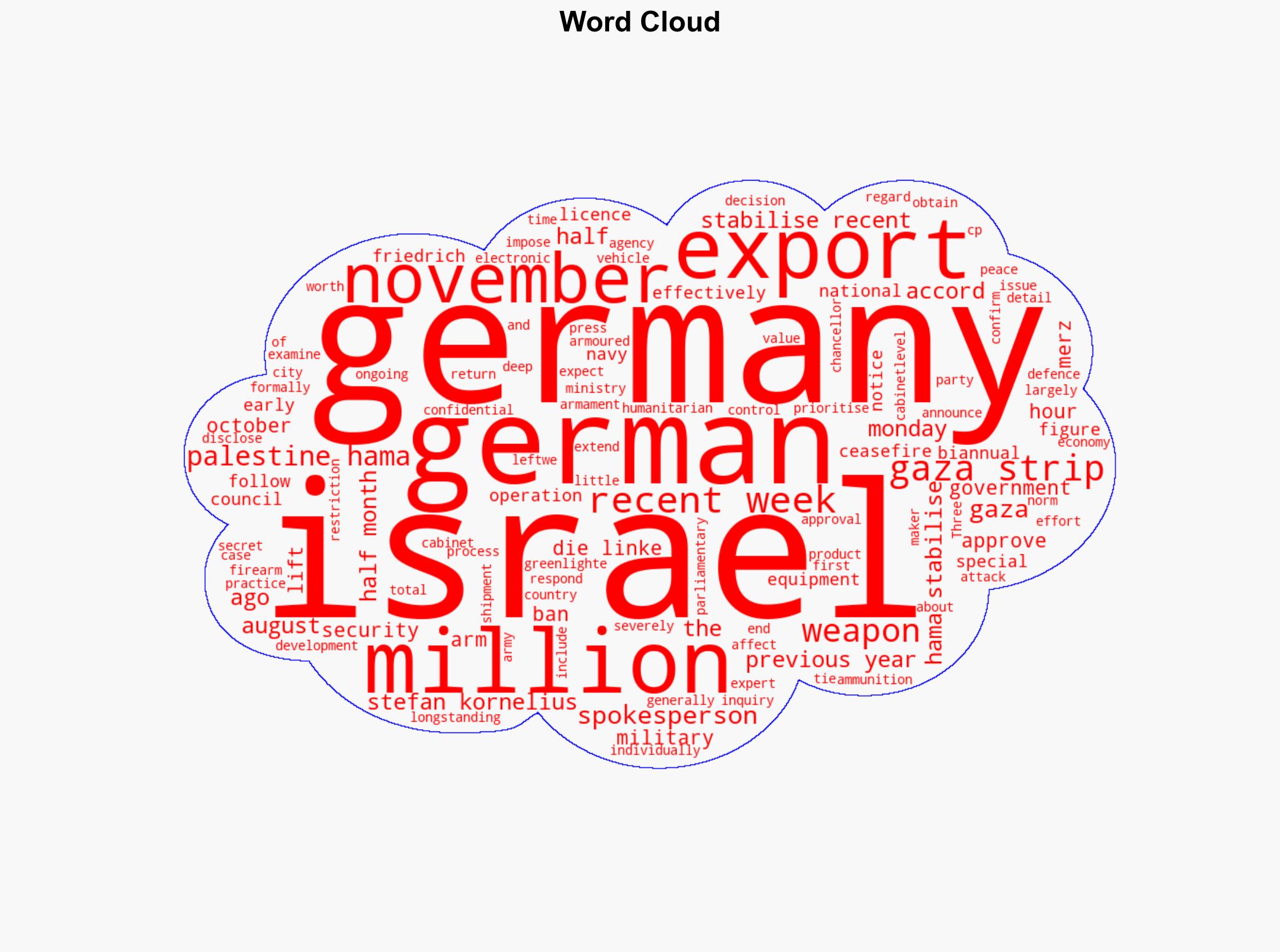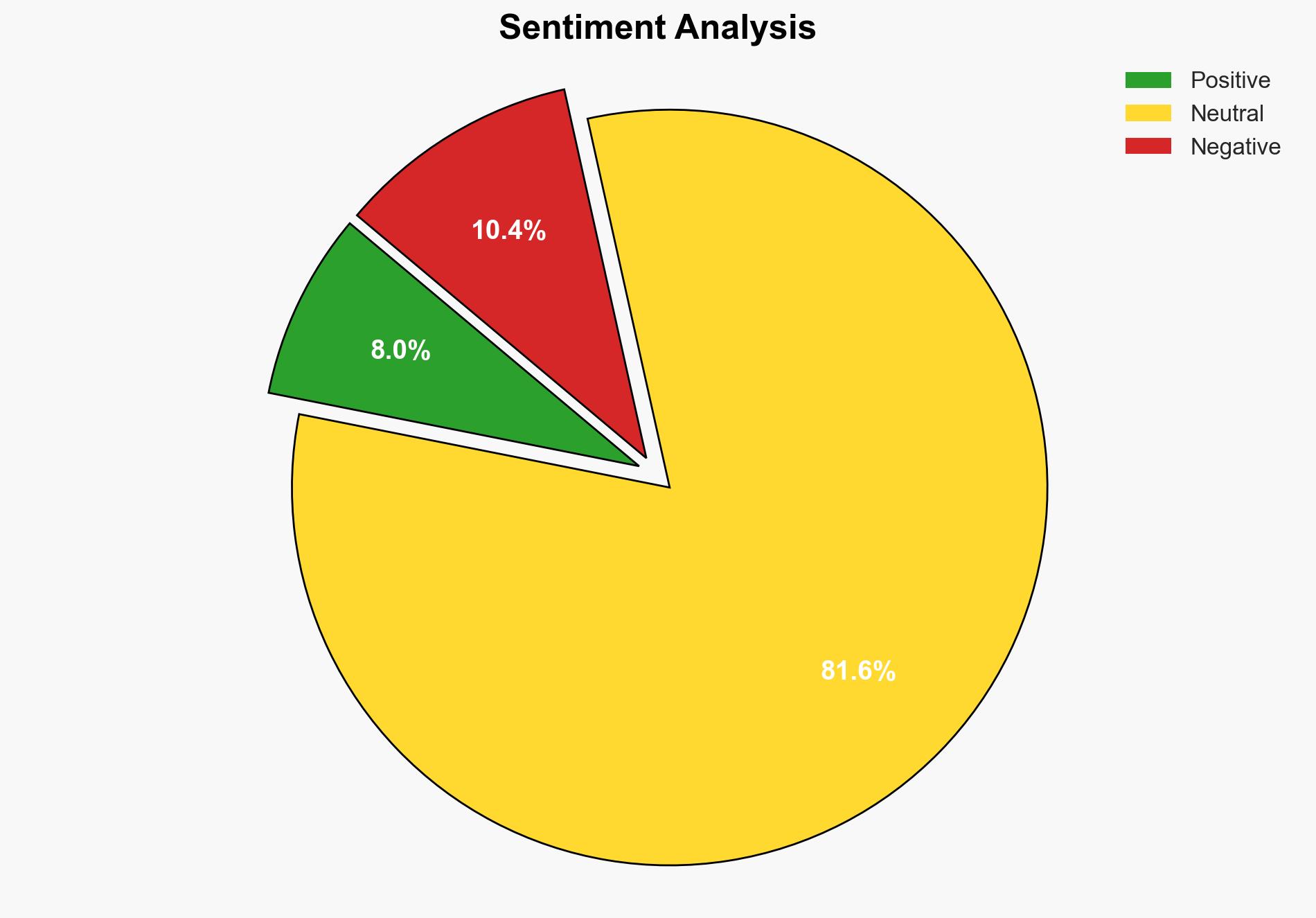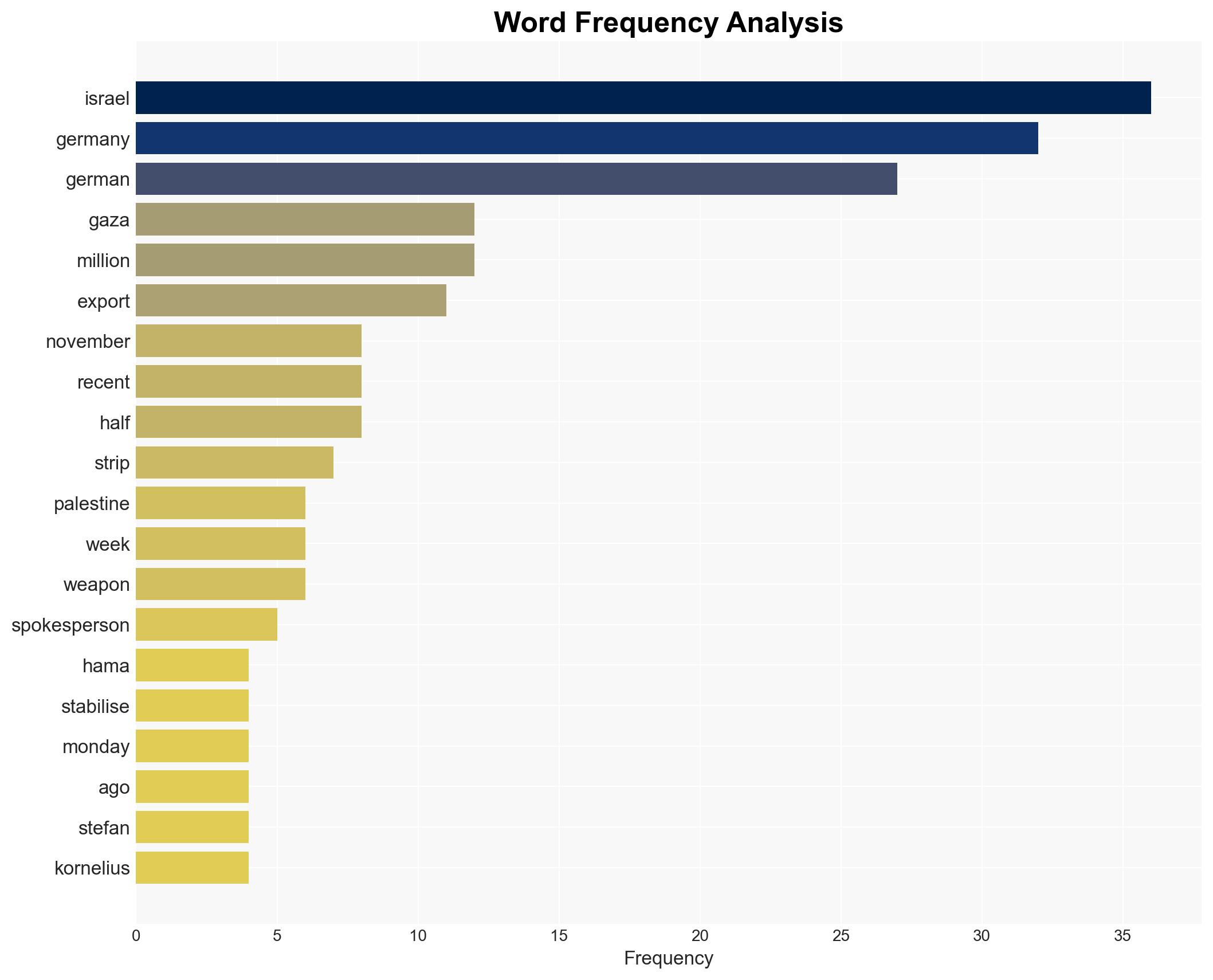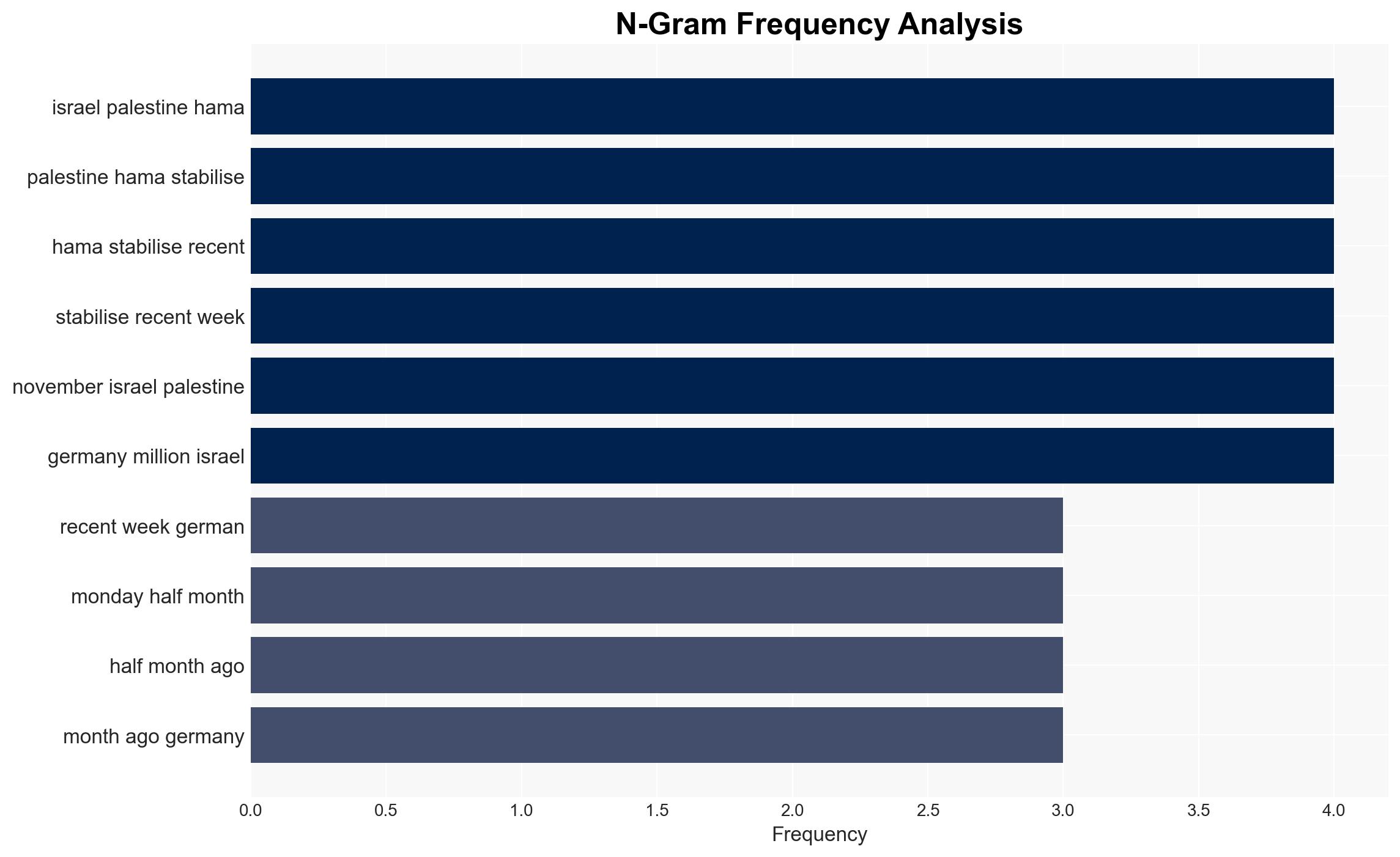Germany lifts arms export restrictions against Israel – EURACTIV
Published on: 2025-11-17
AI-powered OSINT brief from verified open sources. Automated NLP signal extraction with human verification. See our Methodology and Why WorldWideWatchers.
Intelligence Report:
1. BLUF (Bottom Line Up Front)
Germany’s decision to lift arms export restrictions against Israel is most likely a strategic alignment with Israel’s security needs amidst regional instability, with a moderate confidence level. The recommended action is to monitor the geopolitical dynamics in the Middle East and assess the impact on European Union foreign policy cohesion.
2. Competing Hypotheses
Hypothesis 1: Germany lifted the arms export restrictions to strengthen its strategic alliance with Israel, ensuring regional stability and security cooperation.
Hypothesis 2: The decision is primarily economically motivated, aiming to support the German defense industry amidst increasing global competition.
The first hypothesis is more likely given the context of recent ceasefire developments and Germany’s historical ties with Israel. The timing suggests a strategic response to stabilize the region rather than purely economic incentives.
3. Key Assumptions and Red Flags
Assumptions: It is assumed that the ceasefire between Israel and Hamas will hold, and that Germany’s decision is not influenced by external pressures from other nations.
Red Flags: Potential bias in interpreting Germany’s motivations due to lack of transparency in arms export data. The confidential nature of export licenses could obscure true intentions.
Deception Indicators: Sudden policy shifts without clear public rationale could indicate undisclosed diplomatic agreements or pressures.
4. Implications and Strategic Risks
The lifting of restrictions could lead to increased tensions with countries opposing Israeli military actions, potentially straining Germany’s relations within the EU and with Middle Eastern nations. There is a risk of escalation if the ceasefire fails, leading to renewed conflict and complicating Germany’s foreign policy stance.
5. Recommendations and Outlook
- Monitor regional developments closely to anticipate shifts in the security landscape.
- Engage with EU partners to ensure a unified approach to Middle Eastern policy.
- Best-case scenario: Strengthened German-Israeli relations contribute to regional stability and enhanced security cooperation.
- Worst-case scenario: Breakdown of the ceasefire leads to renewed conflict, complicating Germany’s diplomatic efforts and increasing regional instability.
- Most-likely scenario: Continued cooperation with Israel, with Germany balancing its economic and strategic interests in the region.
6. Key Individuals and Entities
Friedrich Merz (German Chancellor), Stefan Kornelius (German Government Spokesperson), German defense industry entities.
7. Thematic Tags
Counter-Terrorism, Geopolitics, Defense Industry, European Union, Middle East Stability
Structured Analytic Techniques Applied
- ACH 2.0: Reconstruct likely threat actor intentions via hypothesis testing and structured refutation.
- Indicators Development: Track radicalization signals and propaganda patterns to anticipate operational planning.
- Narrative Pattern Analysis: Analyze spread/adaptation of ideological narratives for recruitment/incitement signals.
Explore more:
Counter-Terrorism Briefs ·
Daily Summary ·
Support us
·





